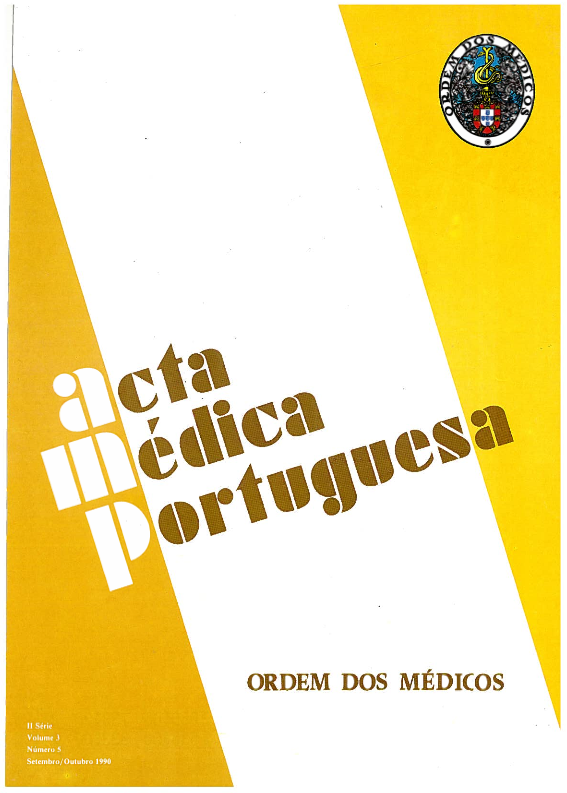Amato Lusitano. An European physician at the time of the discoveries.
DOI:
https://doi.org/10.20344/amp.4580Abstract
Amatus Lusitanus, of Jewish ancestry as most Portuguese physicians of his days, was born in 1511, in the town of Castelo Branco. He graduated as a physician at the University of Salamanca (1529) and practised in Portugal since then to the end of 1533, when he left to antwerp to escape the Inquisition. He acquired an high reputation as a doctor and botanist and was invited to a medical chair at the University of Ferrara (1541), which he left to go to Ancona (1547). He had to rush out of this city when the Inquisition was established there (1555). After a period at Pesaro and Ragusa he went to Thessalonica where he died of plague in 1568. He was acquainted and treated some of the more eminent personages of his time and published some remarkable medical works as the Index Disocorides, Commentaries on Discorides and the Centuries of Medical Cures which outlived him and were many times edited all over Europe. He referred largely to new diseases and medicines related to the Portuguese and Spanish Discoveries of his time, namely syphilis and drugs as guaiacum and Radix sinarum among others. However he never practiced on the new territorries of Africa, Asia and America as others Portuguese physicians did.Downloads
Downloads
How to Cite
Issue
Section
License
All the articles published in the AMP are open access and comply with the requirements of funding agencies or academic institutions. The AMP is governed by the terms of the Creative Commons ‘Attribution – Non-Commercial Use - (CC-BY-NC)’ license, regarding the use by third parties.
It is the author’s responsibility to obtain approval for the reproduction of figures, tables, etc. from other publications.
Upon acceptance of an article for publication, the authors will be asked to complete the ICMJE “Copyright Liability and Copyright Sharing Statement “(http://www.actamedicaportuguesa.com/info/AMP-NormasPublicacao.pdf) and the “Declaration of Potential Conflicts of Interest” (http:// www.icmje.org/conflicts-of-interest). An e-mail will be sent to the corresponding author to acknowledge receipt of the manuscript.
After publication, the authors are authorised to make their articles available in repositories of their institutions of origin, as long as they always mention where they were published and according to the Creative Commons license.









